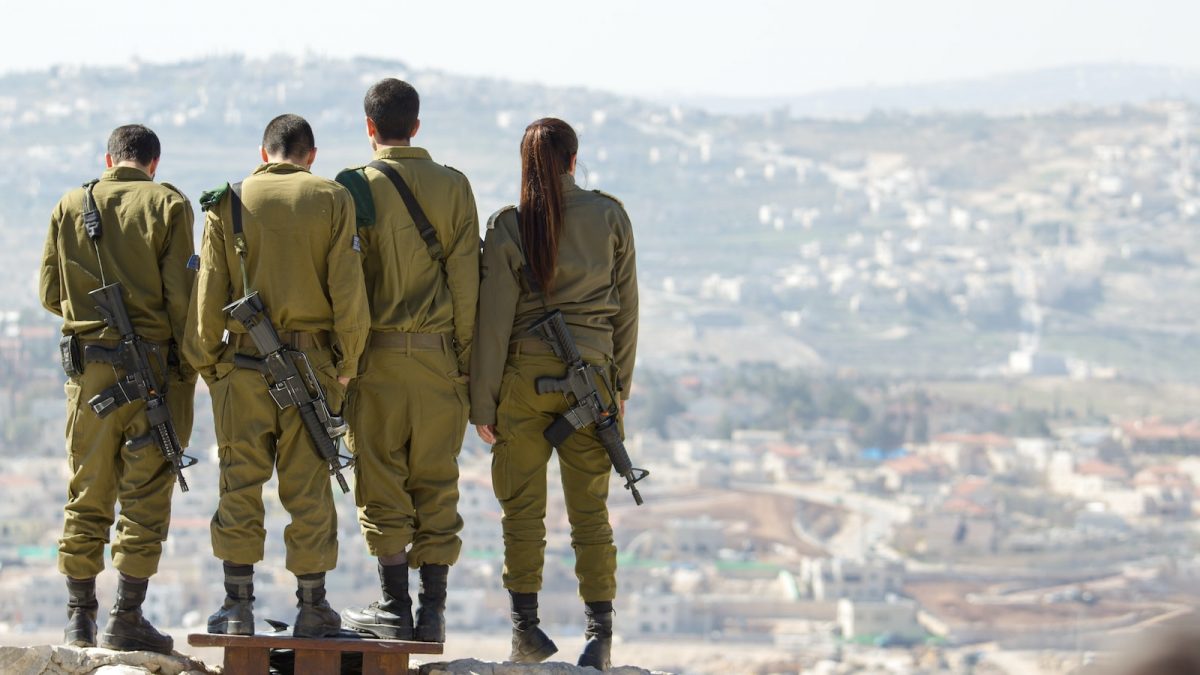
Fr Alex Frost: The Shifting Sands of a Cost of Living Crisis.
November 26, 2023
Watch Back: Bruce Rogers-Vaughn: ‘Caring for Souls in a Neoliberal Age (New Approaches to Religion and Power’)
December 13, 2023In this specially-commissioned blog for Modern Church, Jacqueline deVries argues for the vital importance of religious faith as an enduring factor in shaping our public life. She draws parallels between the current situation in the Middle East, where religious values and narratives continue to shape relations between Israel and Palestine – to tragic effect – and the formative role of religion in the lives of early twentieth-century women reformers in the Church. She argues that ‘theology [still] matters’ despite academic and media commentary that frequently ‘brackets out’ or overlooks the decisive role of religion as a public discourse. Far from being peripheral or irrelevant, faith continues to inform all aspects of lived reality, an insight that is vital to a full and nuanced understanding of global politics.
Elaine Graham is Chair of Modern Church Trustees.
Theology Matters
This blog has been hard to write. Like many of you, I’ve been closely following the horrific fighting in Israel and Palestine, and it’s been difficult to focus on writing deadlines with such visceral reports of violence and destruction. I’ve traveled to the region a number of times and am torn by sympathies to both Israel and Palestine.
During my graduate studies in the early 1990s I spent a year as a Wiener Fellow at the University of Tel Aviv. During that heady time abroad – my first lengthy stay in an unfamiliar culture — I witnessed a young country building a haven of safety for Jews. Even everyday encounters were laden with meaning. Most mornings I would walk along the beach, admiring the seniors who gathered to practice Tai Chi on the sand. Their deft movements somehow signified resilience in the face of historical trauma. Once at a falafel stand, an older man reached in front of me to scoop up more pickled turnips; the tattoo on his arm was unmistakable.
In 1992 the First Intifada was underway. I encountered locked storefronts in the Old City of Jerusalem and some stone throwers while on the bus to Bethlehem. Shortly after I left, a bomb exploded on a bus in Dizengoff Center, not far from my apartment. Nevertheless, my new Israeli friends possessed a spirit of guarded optimism. On Fridays, members of Women in Black would stand silently on street corners to protest the Israeli occupation. On several memorable occasions, I joined hundreds of other peace-minded Israelis in demonstrations led by Shalom Achshav (Peace Now.) The two-state solution seemed like a real possibility.
That context — where three monotheistic religions vie for space and influence — fundamentally shaped the questions I pursued in my dissertation. I went to Tel Aviv to work in the World War I collections of the Weiner Library, looking for evidence of how the war reshaped British feminism. I left at the end of the fellowship with a different focus. Somehow, in that setting, it seemed important to know how religious affinities and faith commitments had shaped a feminist political outlook and actions. At that time, it was a fairly novel question. Aside from a few outliers, women historians at the time seemed reluctant to choose topics that dealt with religion. The field of women’s and gender history was young, shaped more by social history than the yet nascent “cultural turn,” and there were just too many other necessary and compelling topics to pursue. Outside of Israel, I also encountered a subtle prejudice. The editor of the book in which my first published essay appeared asked me to remove all references to the suffragettes’ religious views, as if that would somehow taint them. But in that conflict-torn region, where religious identity determines so much, it seemed essential to understand the religious worldviews of my historical subjects and the theological foundations on which they were based.
Fast forward to 2018, when I ventured back to the region for the first time since 1992. So much had changed. This time my work as a history professor brought me to the occupied West Bank, where my university has a partnership with Dar al-Kalima (DAK), an arts university in Bethlehem. Founded in 2006 by Mitri Raheb, a visionary Palestinian Lutheran pastor, DAK has grown into its own haven of possibility and creative expression. Muslim and Christian students learn together to create art, master culinary skills, and produce extraordinary (and internationally award-winning) films. On subsequent trips to the area, I have walked along the Security Border, toured refugee camps, traversed dozens of checkpoints, witnessed the encroachments of Zionist settlers, and deeply admired the quiet fortitude of all the Palestinians I met. A source of hope in the midst of struggle, DAK recently opened a small branch campus in Gaza. Its newly hired director moved there from the West Bank just days before October 7….
While the current issue of Modern Believing might seem worlds away from the realities of the Middle East, it rests on the realization I had in Tel Aviv many years ago. Theologies matter. And even more, theologies are lived.
The women profiled in this issue lived in a world of fast-changing technology, riven by imperial hierarchies, economic disparities, gender inequalities, and seemingly senseless conflict (sound familiar?) They sought out theologies that made sense of their lived realities. When World War I ripped through any sense of certainty, they looked for some essential truths.
This issue also illustrates how the field of women’s and gender history has developed since my graduate days. Rather than asking how new theologies affected them, it re-centers the inquiry around how they actively shaped the new theologies emerging in the early twentieth century. Their stories provide both hope and inspiration.
Let’s all pray for peace in the Middle East.
Jacqueline R. deVries is professor and chair of History at Augsburg University, an ELCA-affiliated institution in Minneapolis. She is also a member and elder of Westminster Presbyterian Church in Minneapolis.
She was Guest Editor of the recent edition of Modern Believing (64.4, Autumn 2023) on “Women and Theological Modernism”.




